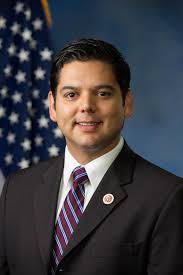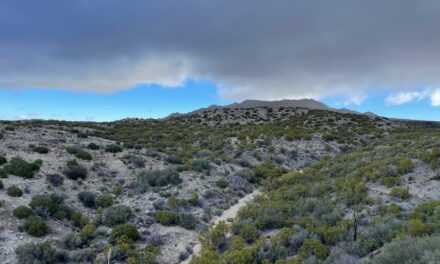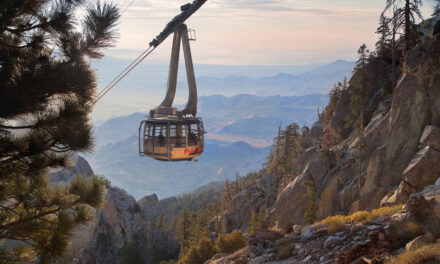Padilla, Ruiz Introduce Legislation to Create César E. Chávez and the Farmworker Movement National Park
WASHINGTON, D.C. — Plans are in the works to create the César E. Chávez and the Farmworker Movement National Historical Park, which some say is long overdue.
But first comes the needed legislation.
Ahead of César Chávez Day, U.S. Sen. Alex Padilla and Rep. Raul Ruiz, both D-Calif., introduced bicameral legislation to create the César E. Chávez and the Farmworker Movement National Historical Park.
This bill would preserve the nationally significant sites associated with César E. Chávez and the farm worker movement in California and Arizona. The legislation is cosponsored by Sen. Feinstein, D-Calif., and Reps. Raúl Grijalva and Rubén Gallego, both D-Ariz.
A map of the proposed park can be found here.

Congressman Raul Ruiz, M.D.
In a prepared statement, Ruiz said, “Growing up the son of farmworkers in the Coachella Valley, I remember seeing César Chávez and the sense of hope he gave to our communities and farmworkers across the United States. His story still inspires and motivates me even today. It is crucial that we amplify the stories of communities whose history too often gets left untold. My legislation with Sen. Padilla, the César E. Chávez and the Farmworker Movement National Historical Park Act, will help the National Park Service embrace their role as storytellers of our nation and reflect the diversity and richness of our people.”
César E. Chávez is a Latino icon and civil rights leader, labor leader, and community organizer whose legacy is intricately connected to the story of California, the farmworker movement, and the push for worker and civil rights. Chávez empowered Latinos and farm workers to fight for fair wages, health care coverage, pension benefits, housing improvements, and countless other protections for their well-being. His commitment to social justice has inspired countless generations and fuels our ongoing efforts to improve the lives of all people, regardless of their ethnicity or the color of their skin.
“On César Chávez Day we commemorate the work and legacy of an iconic Latino civil rights leader,” Sen. Alex Padilla said in a statement. “Establishing the César E. Chávez and the Farmworker Movement National Historical Park will pay proper homage to Chávez’s tireless work for the dignity, respect, and equal treatment of farmworkers. Our National Park System tells the story of our nation and preserves the people, and movements that we value as Americans—yet our park system does not yet adequately preserve the full culture and diverse legacy of all Americans. This legislation would bring us closer to the recognition farmworkers have earned and deserve.”
What the bill would do:
- Create the César E. Chávez and the Farmworker Movement National Historical Park, which would include the existing the César E. Chávez National Monument, which includes La Nuestra Señora Reina de la Paz, in Keene, California.
- Upon written agreement from the site owners, the National Historical Park could include the following sites: Forty Acres in Delano, California; the Santa Rita Center in Phoenix, Arizona; and McDonnell Hall in San Jose, California.
- Conduct a National Historic Trail Study for the “Farmworker Peregrinación National Historic Trail,” the 300-mile march route taken by farmworkers between Delano and Sacramento in 1966.
- Require the Department of Interior to complete a general management plan for the historical park within three years.
“Creating a Cesar E. Chavez and Farmworker Movement National Historic Park would recognize one of the most important leaders in American history, but just as meaningfully pay tribute to all the women and men who helped build and sacrifice for the movement,” said Cesar Chavez Foundation President Paul F. Chavez. “With introduction of the bill coming on the anniversary of my father’s birth, it would share with Americans from all walks of life what transformational leaders and activists could achieve in the never-ending struggle for civil rights and social justice.”
The hundreds of sites that are part of the National Park system preserve our natural, historical, and cultural heritage while offering vital spaces for teaching, learning, and outdoor recreation. While the National Park Service embraces their role as “America’s storytellers”, we know that too few national park units primarily focus on women, communities of color, or other historically marginalized groups. Through the sites preserved by this bill, we can ensure that the National Park System better represents the diverse history of our nation. As a farm worker himself, César Chávez maintained a strong connection to the natural environment; and this bill uplifts his story, and those of others whose contributions helped build the farmworker and civil rights movements that are pillars of American history.
What’s already been done:
- In 2008, Congress enacted bipartisan legislation from Sen. John McCain and Rep. Hilda Solis to direct the National Park Service to conduct a special resource study of sites that are significant to the life of César Chávez and the farm labor movement in the western United States.
- In 2012, President Obama established the César E. Chávez National Monument in Keene, Calif. recognizing the achievements and contributions to the history of our nation by César Chávez and the farmworker movement.
- In 2013, the National Park Service transmitted the Special Resource Study to Congress. The study team evaluated over 100 sites significant to César Chávez and the farm labor movement in the western United States, finding that several were nationally significant and depicted a distinct and important aspect of American history associated with civil rights and labor movements that is not adequately represented or protected elsewhere. While the NPS included five potential management alternatives to protect these sites, they ultimately recommended Congress establish a National Historical Park that would incorporate nationally significant sites in California and Arizona related to the life of Cesar Chavez and the farm labor movement.
A list of endorsing organizations can be found here.
Full text of the bill can be found here.
Image Sources
- Raul Ruiz: Raul Ruiz
- Cesar Chavez: Shutterstock







